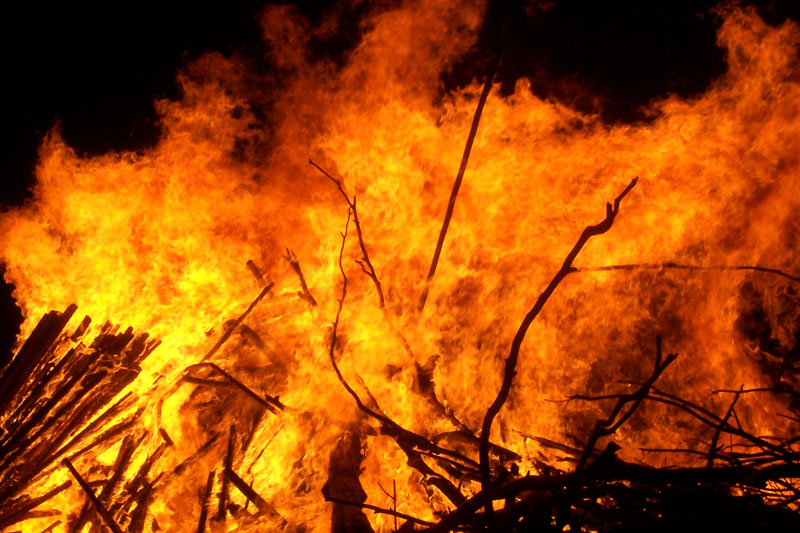Jeffrey Sharpe
4/11/2017
Shale Gas and Hydraulic Fracturing in the United States:
For this week's reading, we had to read a journal article mostly about the cons of shale gas and the fracking process in which it is to retrieve it. One of the things that struck me the most was that in "northeastern Pennsylvania a subset of shallow drinking water wells consistently showed elevated methane, ethane, and propane concentration" (Vengosh, 8336-8337). It is shocking that this is an issue within the United States. The three types of gas mentioned above are highly flammable and when lit, it could possible hurt someone. Especially when the gases are sent to homes with water wells, which can burn down a house, or seriously hurt a child.

Fire
(Author: Unknown)
Photo Location: https://commons.wikimedia.org/wiki/File:Large_bonfire.jpg
Another shocking thing that I had read within the journal article was that "the buoyancy of gas and the flow rate of denser saline water would be substantially slower than the flow of natural gas" (Vengosh, 8338). Which is also another down side of having water wells. Which means that the gas, being lighter than the water, will be at the top of the well. Then it would flow into the well quicker than the regular water, which would fill the well with gas. Which can no longer be used for drinking purposes.

Fire fueled by gasoline.
(Author: U.S. Department of Justice)
Photo Location: https://commons.wikimedia.org/wiki/File:Gasoline-fire.png
The last major issue I had within the text was that "it was suggested that sodium hydroxide (NaOH), 4,4-dimethyl, oxazolidine (C3H7NO), and hydrochloric acid (HCl) would be good indicators to monitor water contamination upon a leak or a spill of hydraulic fracturing fluids" (Vengosh, 8340). It is just shocking that large corporations that deal with fracking is so willing to use these chemicals. If there is a leak somewhere and it finds a way into the local water supply, it would be to late. People will be serious sick, or even killed they intake these chemicals if they do not know it. Possibly causing lawsuits on the company.
Citation:
Vengosh, A., Jackson, R. B., Warner, N., Darrah, T. H., & Kondash A. (2014). A Critical Review of the Risks to Water Resources from Unconventional Shale Gas Development and Hydraulic Fracturing in the United States. American Chemical Society, 48. 8334-8348.
No comments:
Post a Comment